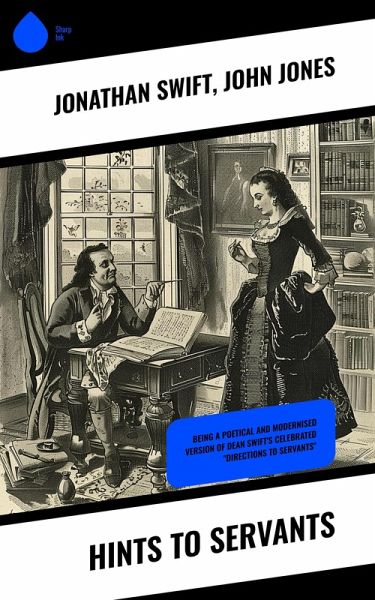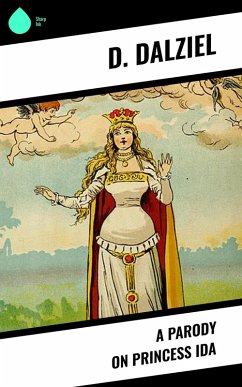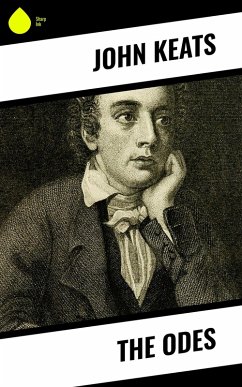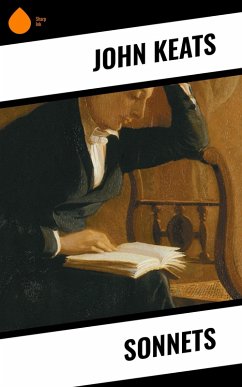
Hints to Servants (eBook, ePUB)
Being a Poetical and Modernised Version of Dean Swift's Celebrated "Directions to Servants"
Versandkostenfrei!
Sofort per Download lieferbar
2,13 €
inkl. MwSt.
Weitere Ausgaben:

PAYBACK Punkte
0 °P sammeln!
In the anthology 'Hints to Servants,' the reader is ushered into a timeless exploration of societal dynamics and human nature through the art of satire. With an eclectic mix of literary styles ranging from sharp wit to subtle irony, the collection dives deep into the conventions of service and society, unraveling the nuanced perspectives of the served and the servile. The varied pieces evoke reflective laughter and critical thought, urging readers to reconsider the structures of power and authority. As a whole, the anthology vibrantly captures the tensions and truths of its time, offering valu...
In the anthology 'Hints to Servants,' the reader is ushered into a timeless exploration of societal dynamics and human nature through the art of satire. With an eclectic mix of literary styles ranging from sharp wit to subtle irony, the collection dives deep into the conventions of service and society, unraveling the nuanced perspectives of the served and the servile. The varied pieces evoke reflective laughter and critical thought, urging readers to reconsider the structures of power and authority. As a whole, the anthology vibrantly captures the tensions and truths of its time, offering valuable commentary on the perpetual dance of social roles. This collection draws upon the mastery of Jonathan Swift alongside the insightful writings of John Jones, creating a rich tapestry of satirical commentary. Swift's keen eye for the absurdity within the mundane pairs seamlessly with Jones's perceptive wit, painting a vivid portrait of 18th-century life. Through their works, they harmonize the discourse on societal hierarchy and human folly, thus providing a distinctive look into the era's literary movements that championed satire as a lens for critical reflection. Both authors bring unique voices that resonate loudly with modern readers seeking historical and cultural depth. 'Hints to Servants' is a recommended read for those aspiring to immerse themselves in the multifaceted world of satire. This anthology offers a unique chance to glimpse various perspectives and styles, showcasing a dialogue between the authors that is as enlightening as it is entertaining. As readers traverse this congregation of voices, they gain profound insights into the societal structures of the past while drawing parallels to contemporary challenges. This collection not only educates but also engages in meaningful discussions on the ideologies and indiscretions of human society, making it an indispensable addition to any literary collection.
Dieser Download kann aus rechtlichen Gründen nur mit Rechnungsadresse in A, B, BG, CY, CZ, D, DK, EW, E, FIN, F, GR, HR, H, IRL, I, LT, L, LR, M, NL, PL, P, R, S, SLO, SK ausgeliefert werden.













